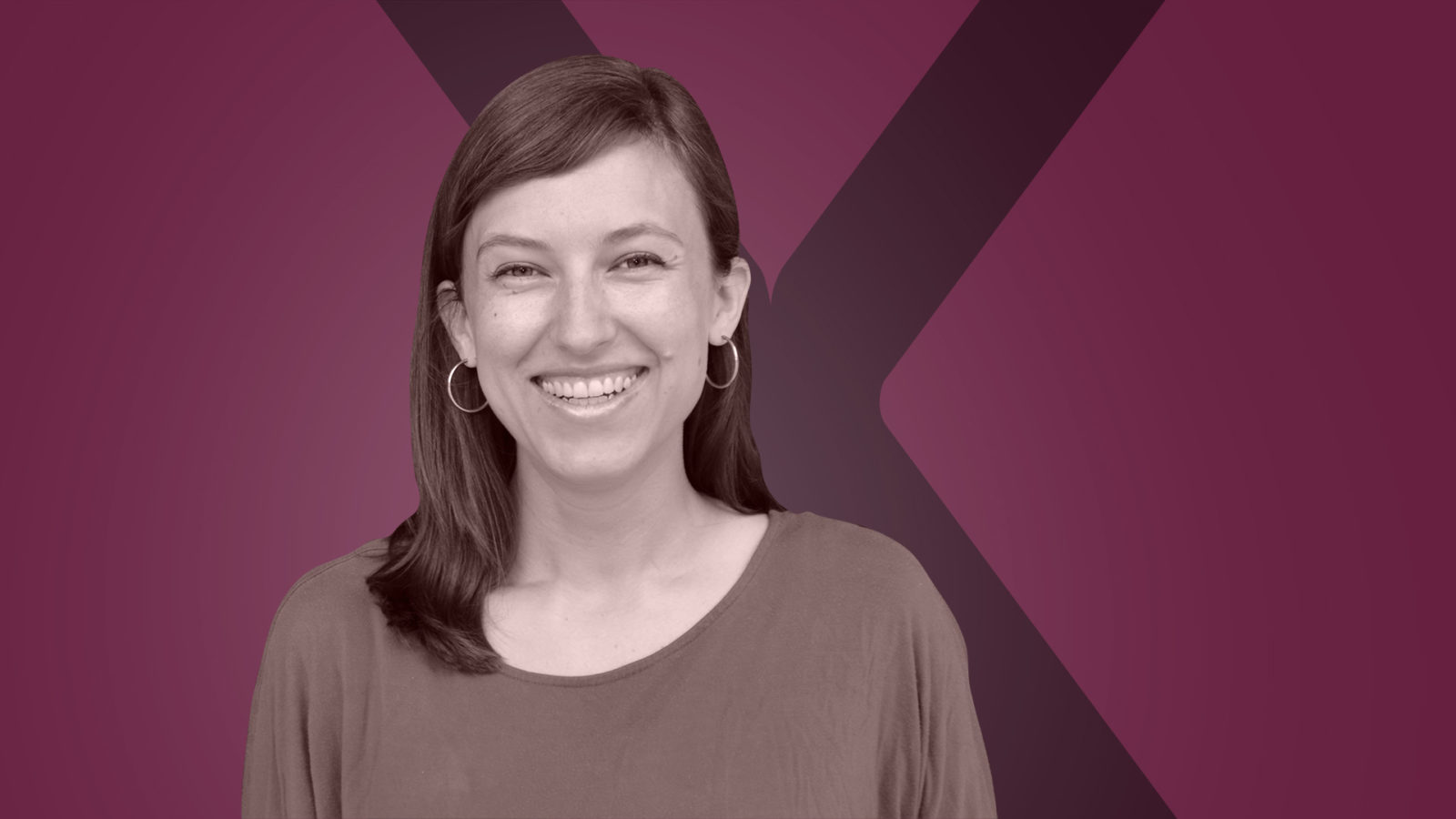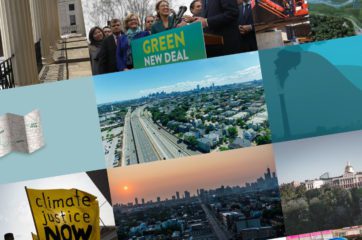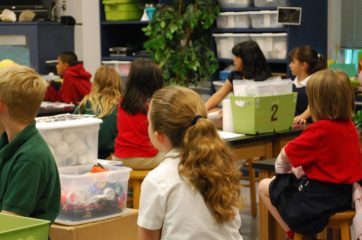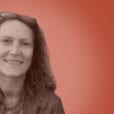We welcomed the newest member of our team a few weeks ago, and could not wait to share the news with all of you. Camila Thorndike joined our team as our very first National Advocacy Director, and will be leading our strategic growth while guiding our advocacy efforts around the country.
Camila is a lifelong environmental and social entrepreneur with a passion for justice. She is the co-founder of Our Climate, and has worked on pivotal climate and energy policy campaigns, including managing the campaign to pass the 2018 Clean Energy D.C. Omnibus Act, the strongest set of sub-national climate policies in the United States at the time. Camila is a Udall Scholar, Sitka Fellow, Mic 50 and Grist 50 awardee, recipient of the 2018 D.C. Environmental Network Award, and 2020 MPA graduate of the Harvard Kennedy School where she was a Bacon Environmental Leadership Fellow.
I sat down with Camila for a chat about the path that led her here, how she sees herself in the movement towards a livable and equitable planet, and what some of her superpowers are.
Listen to our interview, or read the transcript below (edited for clarity and brevity)
Maria Virginia Olano
Hi Camila, I am so excited to get to know a bit more about you today, thank you for making the time.
Camila Thorndike
Same here, Maria Virginia, thank you so much!
Maria Virginia Olano
So I am a huge fan of the Skimm’s podcast, and they start every episode with this question, which I am borrowing today — can you skimm your resume for us?
Camila Thorndike
Sure, I’d say it starts in 6th grade when I was reading the newspaper after school, as I always did, and discovered that there was this terrible natural disaster in El Salvador which had displaced thousands of people who were without water or shelter, and medical support. My mother reports that I said, ‘this is awful, I wish there was something we could do;’ and she said, ‘well, why don’t you do something?’ So that began a campaign that I organized with my best friend and the support of our leadership counselor, Abdi’aziz Guled, who said that he would grow out his ‘fro if we raised our goal of $1,000 for the Red Cross. I remember the big thermometer outside the principal’s office, and once we hit our goal, the feeling of joy and accomplishment and above all, this discovery that when you ask people to chip in — whether it’s their time, or talents, or resources — for a goal of helping all people, and to get something done that is bigger than each of us individually, a lot of people do want to do that. That was my first taste of organizing for change, and I’d say from there it just went into human rights campaigning through high school. Then the discovery that if we didn’t tackle climate change, which it didn’t look like the grown ups were going to do, that all of our progress on women’s equality and global peace and environmental protection would go out the window.
Starting in college, I began organizing for climate policy with the campus climate change, and power shift, and with our college delegation we joined 12,000 other young people in D.C. to fight for the Waxman-Markey cap and trade bill and green jobs with Van Jones. As we all know, that unfortunately did not get a vote in the Senate. Then I went into environmental conflict resolution, figuring that if we didn’t mitigate climate change, we were still going to have to deal with the consequences. I was lucky to receive a fellowship that took me to Tucson, AZ, where I learned the basics of environmental conflict resolution, and went on to coordinate the efforts for a regional land use planning process.
I would say the chapter that leads to me being at Climate XChange began in about 2014-15 when I co-founded Oregon Climate to pass progressive carbon tax in Oregon that could serve as a model for federal policy. We combined the youth and creative organizing of 350 with the policy discipline and focus of CCL, and their belief that every person can become an expert on climate policy; most importantly, they can communicate their demands to lawmakers in a respectful way that builds relationships. We introduced a few bills, and that is how this notion of youth policy organizing really took off and spread to other states, and into the organization which is now Our Climate
I went on to lead a campaign in D.C., and go to grad school, and now I’m here!
Maria Virginia Olano
What are some of the lessons you have carried with you throughout your career in organizing that you hold dear, as it relates to changemaking?
Camila Thorndike
I am thinking about how often it just takes one person to stick their neck out there and say we need a change, and again invite other people to join them, to tap into a vein of discontent or hope, which exists within society. I think that is the role of an organizer. When we were organizing the Oregon climate events, we were blown away by how much support there was, that would have never surfaced if it weren’t for our invitation to join in the way that we did.
The other major lesson, is one I think RBG actually communicates, is that you have to fight hard for what you believe in, but do it in a way that makes other people want to join you. So we invited people to paint or decorate these cardboard cutouts in the shape of a house with why they love living in the Rogue Valley in southern Oregon where I am from, and what worries them about climate change. I think about 1,200 people took us up on that invitation and brought their cardboards to an event near Medford — and those little house shapes became the scales of an enormous salmon mosaic — which became a symbol of beauty and love and the message that we can literally swim together upstream asking for what we want and what we need. And it can be something powerful and joyful.
Maria Virginia Olano
Tell me about what you are looking forward to right now, in terms of joining Climate XChange, but also in terms of the moment of opportunity as you see it currently, what makes you the most excited?
Camila Thorndike
It’s a funny question because in this moment, when we are I’d say all at least on edge, if not outright terrified, about what is going on nationally around the election, and Trump calling white supremacists to stand by and refusing in advance to concede the election. So my first thought was that there is a lot of fear right now, but on the flip side there is just so much incredible organizing and resistance taking place. Really led by those who have been most oppressed, and I am so glad that over the past ten-ish years the climate movement has really taken to heart that those who have really gotten the short edge of the stick of the rapacious fossil fuel, white supremacist economy and culture, are those with the most important lessons and strength and leadership to offer. It has not been easy, but I think the reorientation to centering, for instance, women of color and trans people and queer people, Black folks and native people — everyone who’s been really screwed over by America and its dominant culture are showing us the way forward, and that gives me a lot of hope.
Maria Virginia Olano
It’s interesting to watch these things happening at the same time: those things that give us fear and can instill despair, and then the push forward that we see even more now. It is a bit of a dissonance that is interesting to be living with.
Camila Thorndike
Yeah that is so true, the voltage is turned so high in both directions
Maria Virginia Olano
What are you hoping to achieve at Climate XChange, why were you excited to join the team?
Camila Thorndike
What I am immediately excited about is the GOTV work we are diving into. I think every organization in the civic space and every organizer with skills to offer needs to be focused on this election. So that is really exciting to me that we will be holding these sessions twice a week to be calling environmental voters who may not be mobilized yet.
Bigger picture, I am really thrilled about the opportunity of shaping our strategic direction to account for multiple, perhaps widely divergent future scenarios. Depending on what happens in the election, we might have this really precious final window of federal opportunity to first of all undo the damage that has been done, to the extent possible, and push proactive policy forward. And if it does not go that way, I do think that we are facing already this authoritarian bordering on outright fascism, that is obviously not something that I am excited to tackle, but I do think that an organization like ours will play a very important role in offering people a way of resisting and of advancing proactive policy on the state and local levels wherever possible. That is CXC’s niche, and where I have placed my attention over the past five to six years, and it is really important that people engage in political change at all levels that are accessible to them. National politics may dominate the news, but it is the states who have been the laboratories for democracy and that will continue to be the case either way.
Maria Virginia Olano
What do you think is your superpower? How do you see your skills being the most useful to help us in the transition that we are all hoping to achieve?
Camila Thorndike
What first came to my mind is this little meme someone sent to me years ago when I was first cutting my teeth as a lobbyist in Salem, the capital of Oregon. You know, I didn’t really know what I was doing, I was walking around with bill drafts and trying to get sponsors signed on. And it was really hard, we were up against a lot of entrenched resistance from all corners and this meme really inspired me to consider what a superpower is. It is this hamster and its wearing heart shaped glasses, and it says “can’t see the haters when I’ve got my love glasses on” and that really was my guidance – just like, alright, it’s going to be another tough day but I will put my love glasses on, and I won’t be able to see the haters, I will keep walking my path.
It sounds maybe trite, but I think love is the greatest power in the world, and it can accomplish so much more than hate and ego and greed, and the downfalls of our species. So whenever people and places remind me to tap into the superpower of love, I find myself much more effective, and present and happy in the world.
Maria Virginia Olano
I think we are all coming to the realization that it is in fact far from a naive point of view, but rather something we will all need to harness if we have a chance at a livable and equitable future on this planet.
That brings me to my last question. Talk to us about what the future looks like if we achieve all that we want to. What is the future you are working for?
Camila Thorndike
What beautiful question. Related to what you just said, I think that the process is the end in many cases. In the sense that if we are leading and living with love and with mutual respect for each other and for this beautiful earth that sustains and gives so much to us. Then we are already doing it. I don’t think there is a point at which we have arrived, and that fallacy that there is a journey and destination at which we are done. It has never been that way, I had that epiphany almost ten years ago when I was in a spiral of despair about the future and the climate crisis, looking at that hockey stick [emissions chart] just going up and up and up. I realized that we were fighting just for a more gradual increase and we were locked in either way. So really what were we fighting for? It’s that we were fighting so that every moment could be more abundant, and less scarce and painful than the alternative.
So I think the process of doing this work is how we live into the future that we want. That doesn’t mean that we don’t fight with every single ounce of our beings, it’s that we do so with as much integrity and care as we can.









